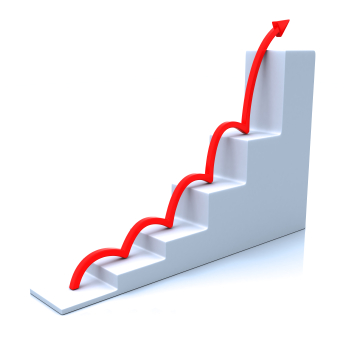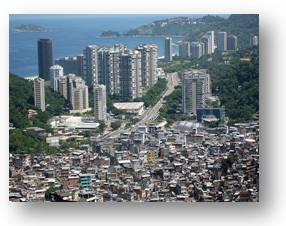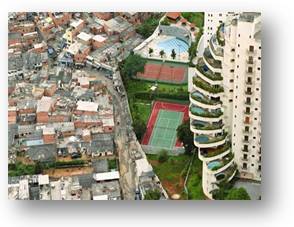The Economy and Economic growth
AO2 You need to be able to:
Demonstrate application and analysis of knowledge and understanding Command
Terms: These terms require students to use their knowledge and skills to
break down ideas into simpler parts and to see how the parts relate: Analyse,
Apply, Comment, Demonstrate, Distinguish, Explain, Interpret, Suggest
AO3 You need to be able to: Demonstrate synthesis and evaluation. Command
terms these terms require you to rearrange component ideas into a
new whole and make judgments based on evidence or a set of criteria. Compare,
Compare and contrast, Contrast, Discuss, Evaluate,
Examine, Justify, Recommend, To what extent
AO4 You need to be able to Demonstrate a variety of
appropriate skills. Command Terms These terms require you to demonstrate
the selection and use of subject-specific skills and techniques: Annotate,
Calculate, Complete, Construct, Determine, Draw, Identify, Label, Plot, Prepare
| Warning -
since The Economy covers a huge, wide ranging amount of information we
can only touch on a few considerations. You should keep in touch
through newspapers, websites and activities that are business related. |
We have already seen that businesses do not operate in a vacuum. They are affected by a range of external factors; with one of the key external factors being the economy. With increasingly global markets, even local firms will now be affected by both the national and international economy. Inflation, unemployment, exchange rates, interest rates and economic growth are all issues that will affect all aspects of business activity.
Changes in government economic policy can have wide-ranging effects on the demand for business products and therefore marketing approaches. Government policy may affect the cost of business inputs - labour, raw materials and capital. As a result, any business that does not keep a careful eye on the external economic environment is vulnerable to reduced sales and profits.
Economic growth
Economic growth is an increase in the productive capacity of an economy measured in terms of the growth in real national income per capita (per head) between one year and another.
Economic growth is normally good news for business. We normally measure it via the real GDP figure - i.e. the Gross Domestic Product adjusted for inflation.
Gross Domestic Product is a measure of the total amount of goods and
services produced in an economy over a period produced by the residents
of a country.
Comparisons of country GDP can be found on the CIA World Factbook or viewed in the window below:
 Businesses usually experience benefits from economic growth because:
Businesses usually experience benefits from economic growth because:
- It delivers new opportunities.
- There is greater certainty in markets.
- Incomes are increasing (businesses with income elastic products will benefit the most in this situation)
- Demand is increasing
- The size of all markets is increasing
However, there are potential negative consequences of economic growth. These may include:
- Damage to the environment
- Depletion of resources
- Rising prices (inflation)
- Increasing size and monopoly power of firms creating unfair competition
- Increasing inequalities between rich and poor
The BRIC countries
The 'BRIC countries' - Brazil, Russia, India and China - are both the fastest growing and largest emerging market economies. They account for almost three billion people, or just under half of the total population of the world. In recent times, the BRIC have also contributed to the majority of world GDP growth.
According to various projections, it is only a matter of time before
China becomes the biggest economy in the world probably between 2030
and 2050. Goldman Sachs believes that by 2050 the BRIC countries will
be the most important economies, relegating the US to fifth place - do you agree?

The Two Faces of Brazil
 Despite
the world recession, Brazil has managed economic growth of almost 5%
and is set to overtake both the UK and France to become the world's 5th
largest economy up from 10th place in 2006. It was one of the first
emerging markets to begin a recovery after the global recession.
Despite
the world recession, Brazil has managed economic growth of almost 5%
and is set to overtake both the UK and France to become the world's 5th
largest economy up from 10th place in 2006. It was one of the first
emerging markets to begin a recovery after the global recession.
Brazil will host the 2014 World Cup and the Olympic games in 2016 raising its profile even further as a global power. Brazil's economy outweighs that of all other South American countries and has an expanding presence in world markets. It has the third largest aircraft manufacturing industry in the world and is tackling climate change, with 50% of its cars running on bio-fuels. It is trying to foster an image as the new 'breadbasket of the world'. It exports more meat than any other country and is aiming to be a significant energy producer. With falling unemployment, a buoyant economy, growing confidence, a hugely popular president, fantastic beaches and 6 millionaires created every hour, Brazil looks a perfect place to live.
However, that is just one side of the story; there is a darker side. Brazil is a country with deep inequality - approximately 60 million people are classified as living below the poverty line.
 The
most visual representation of poverty in Brazil is the slums, or
favelas. Over five hundred favelas can be found within the Rio area
housing approximately 2 million people. Here unemployment is high and
drug wars common. The favelas sit side by side with trendy opulent
areas, magnifying the social divide. According to UNICEF about 42
percent of Brazilian children live in poverty. Approximately one eighth
of all Brazilian children live on the streets. There is little
sanitation, poor electricity and minimal chance of escape. There are
calls for tax, social security, political and labour reforms to address
the cycle of poverty.
The
most visual representation of poverty in Brazil is the slums, or
favelas. Over five hundred favelas can be found within the Rio area
housing approximately 2 million people. Here unemployment is high and
drug wars common. The favelas sit side by side with trendy opulent
areas, magnifying the social divide. According to UNICEF about 42
percent of Brazilian children live in poverty. Approximately one eighth
of all Brazilian children live on the streets. There is little
sanitation, poor electricity and minimal chance of escape. There are
calls for tax, social security, political and labour reforms to address
the cycle of poverty.
Comparing Brazil to similar countries in economic terms is instructive. Brazil and Hungary have comparable per capita income, but the incidence of poverty in Brazil is much higher. In Hungary the richest 20% of the population receives about four times more income than the poorest 20%, whereas in Brazil the richest 20% receives 30 times more than the poorest 20%.
This cycle of poverty and the equality gap needs addressing before the Brazilian economy can really be considered a global power
Adapted from: BBC News sources below:
Additional Data on Brazil can be found from the following sources:
- Brazil EconomyEconomyWatch
- BrazilCIA World Factbook
- Brazil dataWorld Bank
- Embassy of Brazil Links to latest information on Brazil
Written Report
Using the above resources, write a report of approximately 1000 words on Brazil's economy, covering some of the following issues:
- The growth and structure of the Brazilian economy
- The negative effects of rapid economic growth
- Levels of inequality and poverty
- Policies to reduce inequality
- The future economic prospects of Brazil
- A comparison of Brazil with other South American economies
 1.5 STEEPLE -(E1) AO2, AO3, AO4
1.5 STEEPLE -(E1) AO2, AO3, AO4